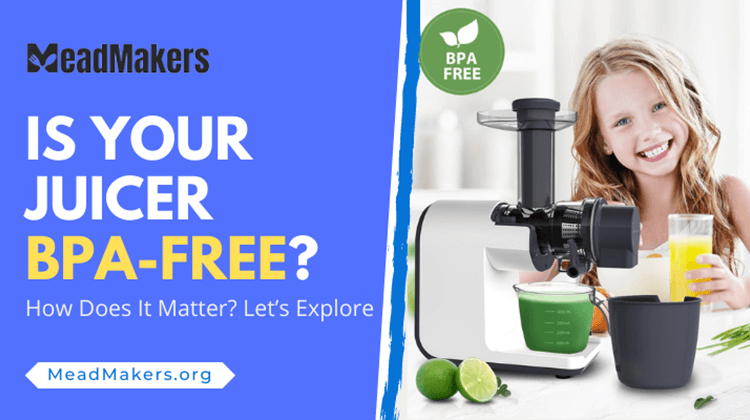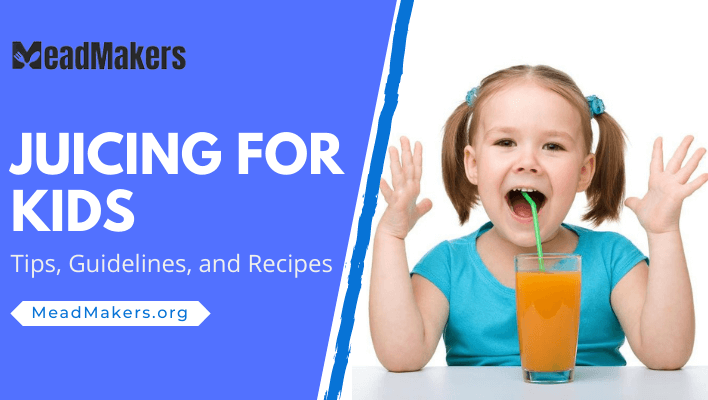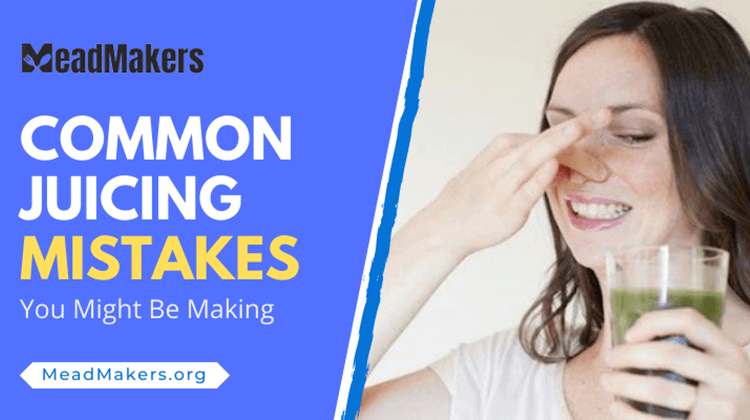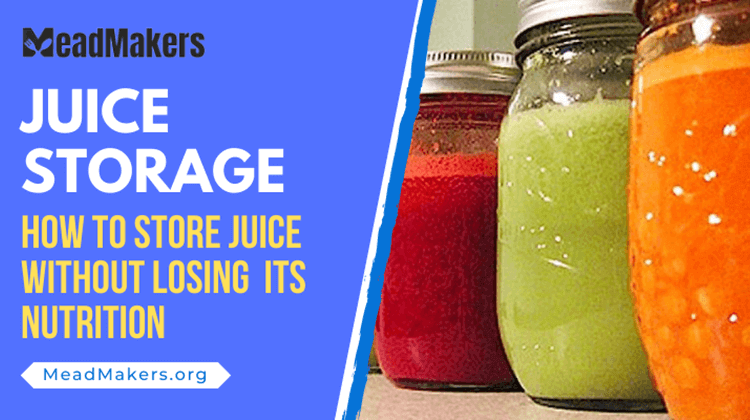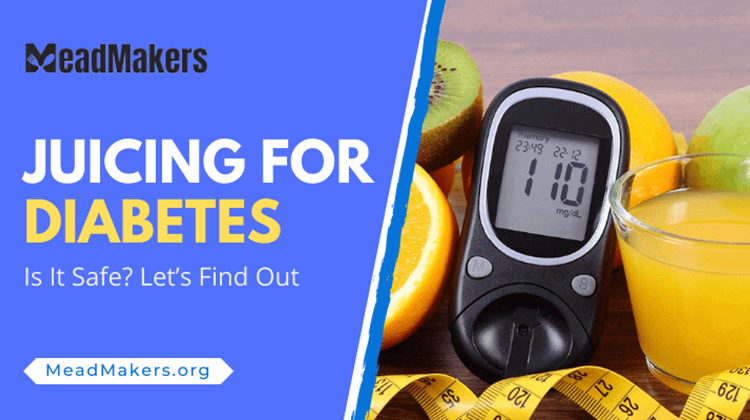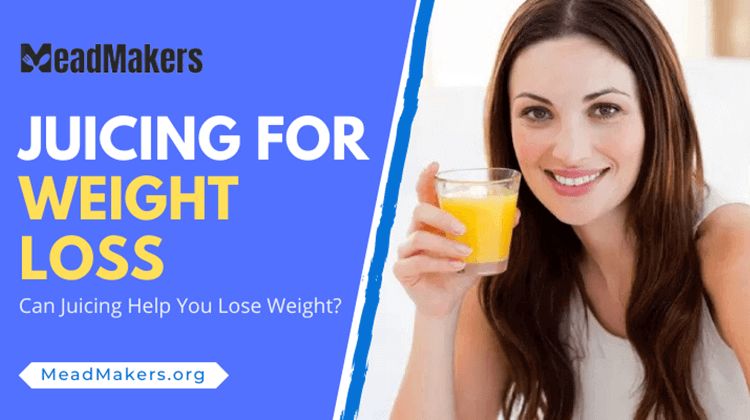Is Your Juicer BPA-Free? How Does It Matter? Let’s Explore
After years of research, plastics containing Bisphenol A (BPA) have been demonstrated to be detrimental to our health. It connects to the same receptors as female hormones and functions similarly to estrogen.
BPA is an endocrine disruptor that affects the brain and reproductive system, as well as increasing the risk of some cancers. As a result, there was a major push to remove BPA from the majority of people’s eating, drinking, and storing containers.
The chemical-containing lining on the inside of canned goods is an example of this. The US Food and Drug Administration banned BPA from baby bottles and children’s sippy cups after worries about the chemical’s harmful effects on growing fetuses, newborns, and children were raised.
According to a new study, BPA-free alternatives such as Bisphenol S (BPS) may not be as safe as previously believed.
Bisphenols, such as BPAF and BPC, is less well-known bisphenols that look like estrogen receptors and bind to them. BPA substitutes have been demonstrated in several studies to be far more detrimental to our health than BPA.
Research on BPA and BPS
Wayne et al. observed the influence of the chemicals BPA and BPS on the genes and brain cells that control the reproductive systems of zebrafish in a UCLA study (2015).
In the study, the zebrafish were exposed to low quantities of BPA and BPS. They then studied the chemicals’ effects, finding that modest dosages of BPS had the same effect on the zebrafish embryo as BPA.
Side effects included rapid embryonic development, early birth, and alterations in estrogen and thyroid hormones.
According to a 2013 study by Texas researchers, BPS might “interfere with the correct functioning of a cell” at concentrations as low as one part per trillion, and in many cases, resulted in cell death.
When BPA and BPS were evaluated in terms of increased brain cell proliferation, BPS surpassed BPA by 60%. BPA rose at a faster rate of 180 percent than BPS, which expanded at a rate of 240 percent.
Zebrafish exposed to either medication showed signs of hyperactivity.
In this 2014 study by Wang et al., female rats developed cardiac arrhythmia when exposed to levels comparable to those experienced by people.
Among other things, it lowered the amount of sperm in male rats.
BPA leached from plastics 55 times faster when exposed to high heat than when exposed to cold or normal temperatures, according to a study done by Scott Belcher, an endocrine scientist at the University of Cincinnati.
Additionally, the rate of leaking increased when products such as bottles or sippy cups were boiled and then allowed to cool.
How to Reduce Everyday BPA Exposure
Living a bisphenol-free lifestyle may be difficult due to the widespread use of these chemicals in everyday consumer products. As a result, it is impractical to completely eliminate BPA and other chemicals like BPS from our lives.
We may, however, take care to limit our exposure to the greatest extent possible. Consider the following tips for reducing your everyday exposure:
- Use aluminum foil, beeswax-coated cotton wrap (reusable), or parchment paper instead of plastic wrap.
- Buy organic loose-leaf tea. You can use a stainless steel or glass tea strainer while brewing tea. Check to verify if the bag includes epichlorohydrin, an epoxy used to treat paper tea bags if you prefer to buy a pre-packaged brand. Avoid the silky mesh bags, which are made of plastic.
- When brewing coffee, use a French press or a ceramic drip machine.
- Never use plastic utensils, plates, or cups to eat or drink. Stainless steel, ceramic, or glass should be used instead.
- Never, ever microwave meals in a plastic container because chemicals leach into the food when plastic is heated to high temperatures.
- Fresh or frozen foods should be substituted for canned ones. The linings typically include BPA, BPS, or PET.
- Never consume water from a plastic bottle. When on the go, drink tap water and store it in a stainless steel or glass container. Also, stay away from canned soda. They are typically lined with BPA or BPS.
- For your infants and toddlers, use glass baby bottles instead of plastic teething rings.
- A lot of people use thermal paper. To avoid absorbing it with your fingertips, ask for a receipt to be mailed to you (many businesses now do), or don’t get one at all unless you absolutely need one.
- BPA is included in plastics #3 and #7. Option #2, #4, and #5 should be chosen instead.
Read Also: Juicing for Kids: Tips, Guidelines, and Recipes
What Does This Mean for My Juicer Choice?
Despite the fact that the Food and Drug Administration has cleared the use of BPA/BPS, the Environmental Protection Agency believes it does not pose a health risk. There is nevertheless cause for concern when fetuses, infants, and toddlers are exposed to the poisons, especially when they are still growing.
Long-term exposure to the chemical, according to the researchers, could pose a risk at a critical stage in the growth process.
Some scientists feel BPS isn’t as safe as BPA, while others disagree. When it comes to your and your family’s health, though, it’s always best to be safe than sorry.
Sure, you could do rid of all plastics, but it isn’t a viable choice.
It can be difficult to avoid these chemicals when you first start juicing because BPA and BPS are present in practically all plastic products on the market today, including juicers.
Even BPA-free juicers aren’t entirely safe. Because most juicer machines have numerous plastic components, I’ve compiled a shortlist of recommendations to help you decide whether or not to buy and use a juicer.
- To decrease your exposure to all plastics you come into contact with, switch to health-friendly alternatives like glass, ceramic, or stainless steel.
- Stay away from storage containers and dishes that contain BPA or BPS. Silicone, polypropylene (PP), HDPE/LDPE, glass, and stainless steel are some of the alternatives. In addition, when stored in a glass container, your juice preserves its quality better.
- Replace the plastic juice collector in your juicer with a glass container. As a juice collector and storage container, a mason jar is ideal.
- Cold press (masticating) juicers are the preferable option because they work slowly and don’t emit any heat during juicing. It’s recommended to wash them by hand whenever possible.
Recommended Posts:
Juicing During Pregnancy: The Most Comprehensive Guide
Juicing for Diabetes: Is It Safe? Let’s Find Out
